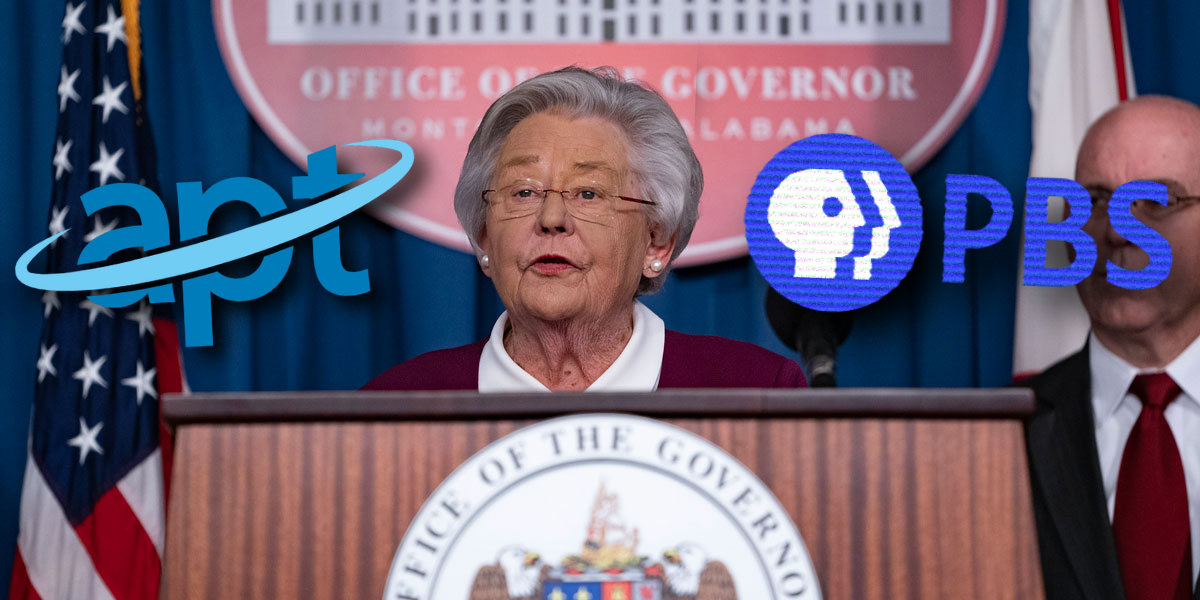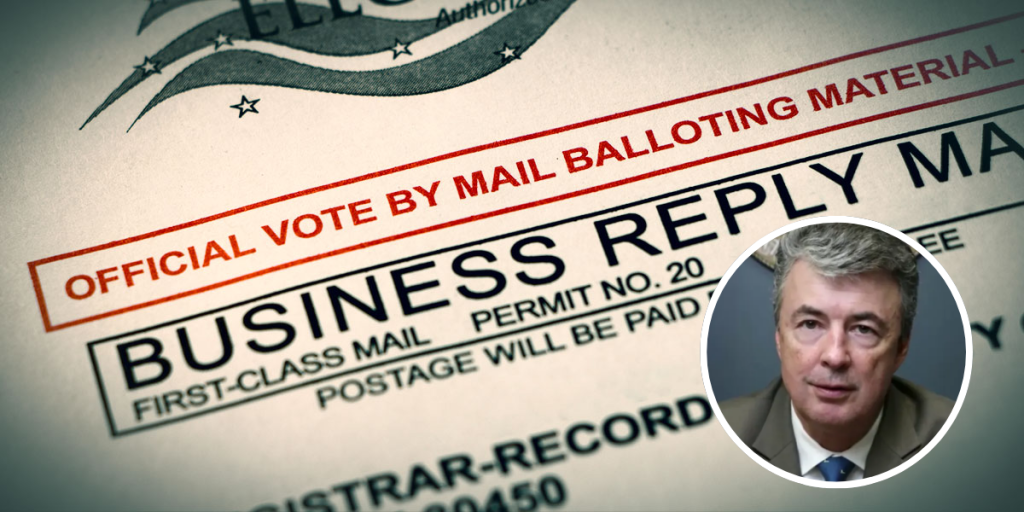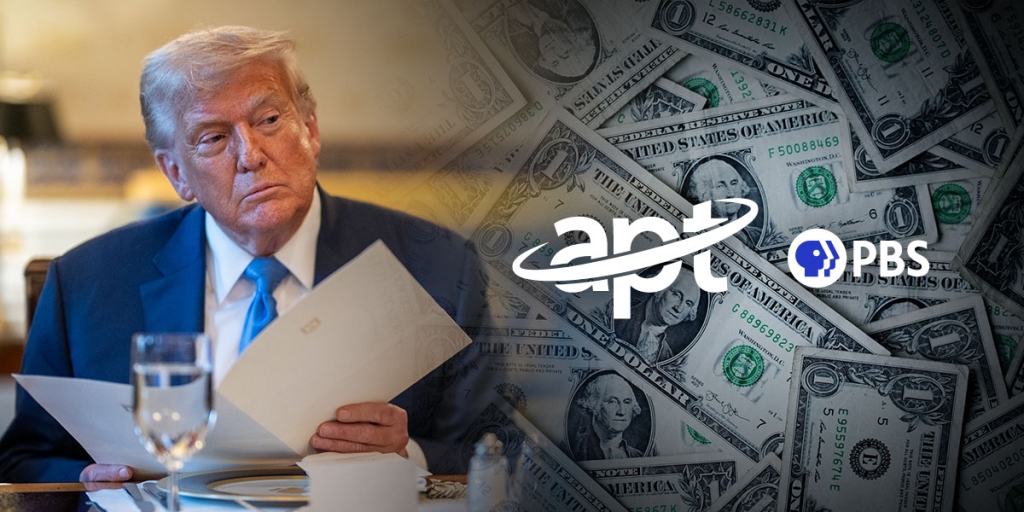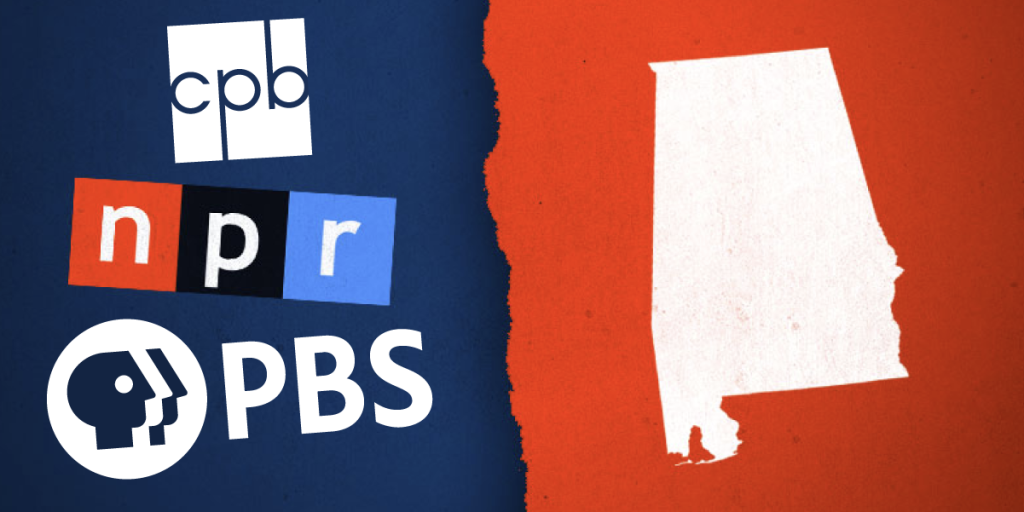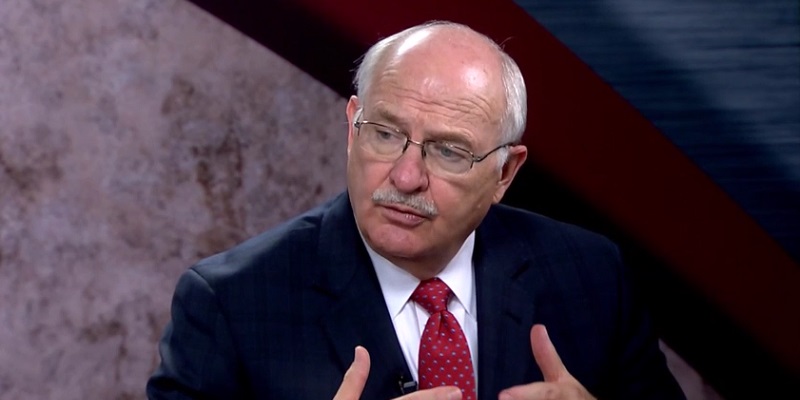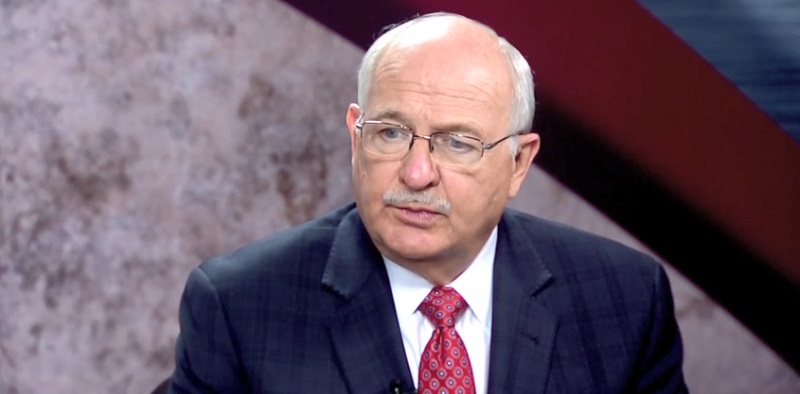Alabama Governor Kay Ivey is stepping into the fight over the future of Alabama Public Television in a letter issued today, urging the board that oversees the network to slow down, follow the law, and listen to Alabama voters before making any move to cut ties with PBS.
Ivey made it clear to the Alabama Educational Television Commission she’s sympathetic to conservative concerns about PBS, but equally adamant that a drastic, unilateral break can’t be rushed through without a plan or a mandate from the people.
“I am writing about the prospect of APT disaffiliating with PBS,” Governor Ivey writes in the letter.
“As Governor, I have worked hard to promote and defend Alabama values from standing up for the sanctity of human life and our rights to religious liberty to standing against DEI, CRT, and boys playing girls’ sports. For the sake of our people, it is imperative that APT’s programming align with Alabama values.”
“At the same time, I have also strived to ensure that state government operates in an orderly fashion, with due regard for deliberation and collaboration among stakeholders,” Ivey writes.
The commission, which governs APT, has been openly discussing whether Alabama should become the first statewide public TV network to sever its PBS partnership, a move that would pull long-running children’s and educational programming like Sesame Street, Daniel Tiger’s Neighborhood, NOVA, and PBS NewsHour off the air and out of APT’s streaming lineup.
Governor Ivey lays out what her proposal looks like in practice:
“First, the Commission should thoroughly survey Alabama voters to ensure their voices are heard.
Indeed, it is the Commission’s statutory duty to ‘survey, study, and appraise’ the need for a public television plan in Alabama. Such a survey should be performed by a reputable market research firm and be supplemented by actual viewership data. The survey should be specific to Alabama, gauging our citizens’ views not just on the policy reasons for disaffiliation but also on likely next steps for APT should disaffiliation occur. The survey should also be conducted over a sustained period of time. If the Commission is going to disaffiliate from PBS, it should do so in response to trends in voter opinion, not just an isolated snapshot.
Second, the Commission should prepare a thorough disaffiliation plan for public review.
The Commission was established by law ‘for the purpose of making the benefits of educational television available to, and promoting its use by, inhabitants of Alabama.’ Before the Commission votes to disaffiliate with PBS, it should therefore develop a written plan identifying the reasons for such a move and specific ways to ensure that the Commission will continue fulfilling its legal duty.
Such a survey should be performed by a reputable market research firm and be supplemented by actual viewership data. The survey should be specific to Alabama, gauging our citizens’ views not just on the policy reasons for disaffiliation but also on likely next steps for APT should disaffiliation occur. The survey should also be conducted over a sustained period of time. If the Commission is going to disaffiliate from PBS, it should do so in response to trends in voter opinion, not just an isolated snapshot.”
Ivey also urged the commission to make any disaffiliation plan available for public review “for a considerable length of time” and said the panel could even take the proposal to focus groups around the state.
“I am aware of, and even sympathetic to, the belief that maintaining a public television network is not a proper function of government,” Ivey wrote.
“But whether the State should or should not operate public television is a question for our Legislature, and current law makes clear the Commission’s function. Until the Legislature decides otherwise, it is our duty in the executive branch to faithfully implement that law as I have outlined above.”
Some commissioners have pointed to President Donald Trump’s push to end federal support for public broadcasting and the resulting loss of more than $2.8 million in Corporation for Public Broadcasting funds for APT, stemming from the well-established liberal bias in national NPR and PBS news programming.
If the commission ultimately chooses to cut ties, APT would be forced to replace as much as 90% of its programming in a way that prevents its donations and memberships from collapsing.
The Commission’s next meeting is being held tomorrow in Birmingham.
Grayson Everett is the editor in chief of Yellowhammer News. You can follow him on X @Grayson270.




